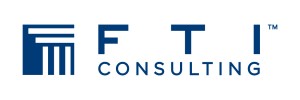7 July, 2016
President Obama’s historic three-day trip to Vietnam in May—a visit some likened to that of a touring rock star rather than a head of state—brought renewed attention to the nation’s emergence on the world economic stage. Add to that a strong GDP, and pending ratification of the TPP, and it’s no wonder investors are eagerly eyeing Southeast Asia’s new power player. But, buyer beware: there’s still that little matter of a Communist party to contend with…
It’s no secret the Vietnam’s economy is red hot. Compared to its regional and emerging market peers, Southeast Asia’s second most populous country is being touted as a “standout” for its above average GDP growth rate. Add in the upside that it’s also poised to become the biggest beneficiary from the Trans Pacific Partnership (TPP), and things really start to get interesting.
How interesting?
Of the twelve TPP member countries, Vietnam is expected to gain the most and could see its exports grow by as much as 28% over the next ten years.
However, those gains will not be fully realized without first dealing with significant challenges, including ratification of the pact. (For the record, TPP cleared Vietnam’s Central Committee in January and preparations are underway for the National Assembly to ratify the agreement.)
Once passed, the partnership will also require Vietnam to re-up its commitment to continued reform, which in turn, will further raise its profile as an investment destination.
Connections, Culture & Corruption
As appealing as the Vietnamese economy is, foreign investors still must tread cautiously and should fully understand the country’s macro- and micro-environments, particularly as they pertain to three key areas: connections, culture and corruption.
One cautionary tale comes from a foreign company that was looking to buy a medium-sized family-owned manufacturing business. The business, a pioneer in its sector and also the first to receive an internationally recognized license from the Vietnamese government, was highly attractive. But while researching the deal, the investing company discovered that the family that owned the business had several important relationships (connections) with a number of government departments that had granted it key licenses and business contracts.
The questions that followed were obvious: Did the business deserve the licenses? And would it be able to maintain them after the well-connected family sold the business?
Other areas of risk include the more common developing market dilemma of widespread corruption, as well as the degree of diligence and training needed to address such an ethical problem that is both deep rooted and often culturally accepted. It’s worth noting that Vietnam ranked lowest among the 12 TPP nations on Transparency International’s Corruption Perceptions Index, with land administration, customs, construction, mining and minerals, taxation, transport, and traffic police cited as the most corrupt sectors.
Vietnam is Open for Business
For its part, the ruling Communist Party of Vietnam (CPV) and its leadership have emphasized combatting corruption. Whether this will translate into concrete and substantial action to clean up the CPV and by extension, the state, however, is an uncertainty.
To be fair, the leaders of one of the last Communist countries on Earth have been working towards creating a socialist-oriented market economy for the past 30 years, starting with the so-called Doi Moi Reforms in 1986 and the commitment to a number of free trade pacts and diplomatic de-frostings along the way. Other notable gains more recently include the removal of foreign ownership limits on most listed companies and, of course, the current push to pass the TPP.
By all accounts, their work isn’t going unnoticed as the country’s ever improving pro-business environment is gaining momentum and winning converts. For example, the latest foreign direct investment (FDI) figures show a 600% increase over the past ten years, while M&A activity surged 23% last year alone to $5.3 billion.
Peaceful Prosperity
Unpredictability and unforeseen risks always complicate emerging market investing, but investors and other outsiders are clearly already taking note of the change in Vietnam, marking its progress and calculating the opportunity.
President Obama called attention to this fact when, in a highly symbolic move, he announced the repeal of a long-standing ban on the sale of weapons to the country. This diplomatic gesture not only underscored the trust and strategic partnership with the U.S. that is emerging but also offered Vietnam a degree of leverage in its sometimes tense dealings with neighboring China.
“Like my two daughters, many of you have lived your whole lives knowing only one thing [about Vietnam],” President Obama told a crowd gathered in Hanoi. “And that is peace and normalized relations between Vietnam and the United States. So I come here mindful of the past, mindful of our difficult history, but focused on the future.”
For further information, please contact:
Greg Hallahan, Senior Director, FTI Consulting
greg.hallahan@fticonsulting.com





